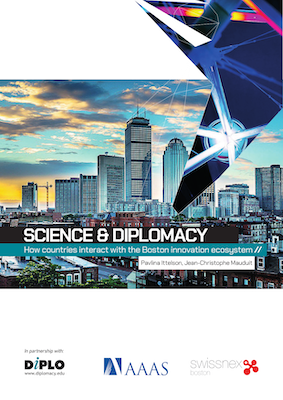Note: This article is a part of the publication ‘Science diplomacy capacity development: Reflections on Diplo’s 2021 course and the road ahead’
Science is a game changer for nations today, as more and more countries are adopting science as a tool for modernizing their economies and a means to monitor their development. It contributes to the formulation of well elaborated, evidence based and transversal policies that rely on relevant data and research, knowledge, appropriate methodologies, and monitoring systems to build certainty and trust around the policies themselves, as well as around the expected outcomes and socio-economic impact.
Science diplomacy can be described as the interaction between the latest tendencies, marked by the increasing integration of emerging technologies and the automatization of almost all fields, and political debates surrounding each area, namely what affects living together and the future of humankind on earth such as climate change and pandemics.
As an expert working in the field of ICT&Digital for an Intergovernmental Organisation, namely the African Union Commission, this course relates to my day-to-day work. It helped me to have a better understanding of the central place of science in contemporary economy and society and the link between technology and state affairs.
The knowledge I obtained in this course will support my work towards building political awareness of the growing importance of Science Diplomacy as well as the urgent need for African countries to incorporate science in policymaking processes, including foreign policies This is due to their interlinked nature, and that they have a direct impact on their economies as well as on national ownership and security.
More than ever before, the African continent is looking towards harnessing the potential of technology and science to address some of its lasting security and development issues. Indeed, aspects related to energy efficiency, climate change, health, satellite observation and responsible use of natural commodities are of special interest and therefore Science Diplomacy is an indispensable tool for bringing countries together to take informed decisions that safeguard both national and collective interests, positioning Africa as a strong partner in the global economy.
With regard to the knowledge acquired in this course, the starting point for me would be facilitating policy dialogues between the diplomatic and scientific communities as our countries cannot afford to continue working in silos while the world is moving very fast with new concepts and new thinking on global issues.
Another priority is reaching out and engaging African native scientists and incentivising them to share their expertise and put it at the disposal of their populations. The third point would be to advocate for the extensive use of science to ease negotiations and build trust among states.
I would recommend this course to policymakers, scientists and diplomats as it is a good platform for exchanging views and experiences from different perspectives and also an opportunity to build the Science Diplomacy community that will contribute to solving transnational problems, anticipate changes that may come in the future, mitigate risks, and prevent inter-state conflicts.
Most importantly, it will give the ambition to speak the same and adequate language to embark our governments upon up-to-date and forward looking policies and approaches that preserve life and peace on our planet.








